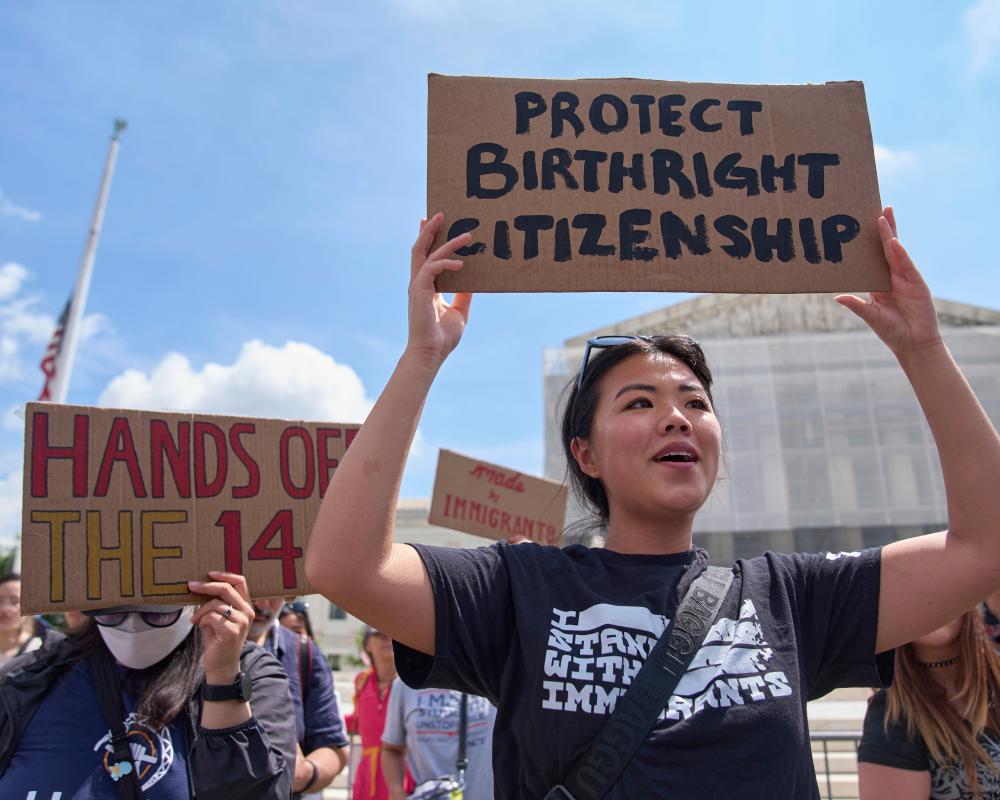Donald Trump’s effort to repeal birthright citizenship has hit another a stumbling block, with a federal appeals court in San Francisco declaring the president’s attempt unconstitutional.
The three-judge ruling panel in the 9th US circuit court of appeals echoed a district court in New Hampshire that blocked the executive order earlier this month.
“The district court correctly concluded that the executive order’s proposed interpretation, denying citizenship to many persons born in the United States, is unconstitutional. We fully agree,” the verdict said.
The case is now one stop further on the long road to the US supreme court.
Related: As Trump targets birthright citizenship, the terrain is once again ‘women’s bodies and sexuality’
Trump’s executive order banning birthright citizenship was signed just hours after the president took office on 20 January and was immediately challenged in a spread of courts across the country. It has faced a tumultuous legal battle ever since. Birthright citizenship is a legal principle that allows nearly everyone born on US soil to become a US citizen.
In under a month since the executive order’s filing, multiple judges across the country have filed injunctions blocking the order.
Trump’s administration then took to the supreme court to fight the injunctions. In a major decision, the US supreme court ruled that injunctions by the lower courts were exceeding their given authority, effectively transforming the mechanics of the US justice system. The verdict did not address the legality of the birthright citizenship ban itself.
A loophole was left, however, for those looking to fight the executive order – class action lawsuits. In opposition to the executive order, New Hampshire judge Joseph LaPlante recognized babies across the US as a class that would be affected by the lawsuit and said depriving them of citizenship constituted irreparable harm.
Birthright citizenship was embedded in the US constitution’s 14th amendment in 1868, overturning the infamous 1857 Dred Scott decision and giving citizenship to formerly enslaved Americans. It was strengthened in 1898 in the Wong Ark case, which upheld the citizenship of American-born Wong Kim Ark in the face of the Chinese Exclusion Act. Indigenous Americans were historically excluded from birthright citizenship, which changed with the Indian Citizenship Act of 1924.
Long a fringe issue in rightwing circles, the effort to repeal birthright citizenship was brought back into Congress in 1991 and has appeared regularly since. Trump’s executive order, constitutional or not, marks its furthest foray into the mainstream.
At time of writing the Trump administration was yet to comment on the ruling.

